Saudi Arabia plans to enrich and sell uranium as Iran commences nuclear talks with E3
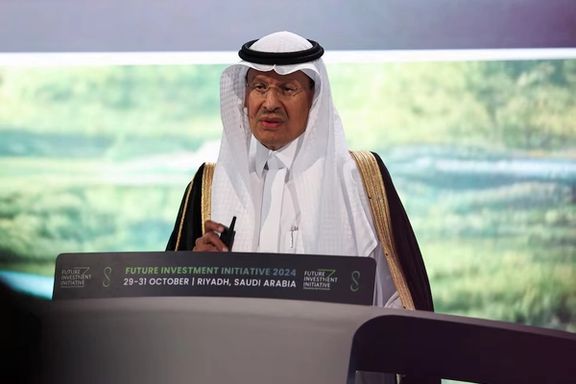
Saudi Arabia plans to monetize all its mineral resources, including uranium, by enriching and selling it, while Iran begins nuclear talks with the E3 in Geneva.

Saudi Arabia plans to monetize all its mineral resources, including uranium, by enriching and selling it, while Iran begins nuclear talks with the E3 in Geneva.
Speaking at a conference in Dhahran, Saudi energy minister Prince Abdulaziz bin Salman said on Monday, "We will enrich it and we will sell it and we will do a 'yellowcake,'" referring to the powdered concentrate used to prepare uranium fuel for nuclear reactors.
According to Iranian media, Iran's two-day discussions with the E3 (Britain, France, and Germany), along with a European Union representative, will focus on negotiations for a nuclear deal and regional issues.
The talks follow November meetings amid tensions following the UN nuclear watchdog's Board of Governors' resolution censuring Iran, demanding that Tehran resolve outstanding issues with the IAEA over its advancing nuclear program.
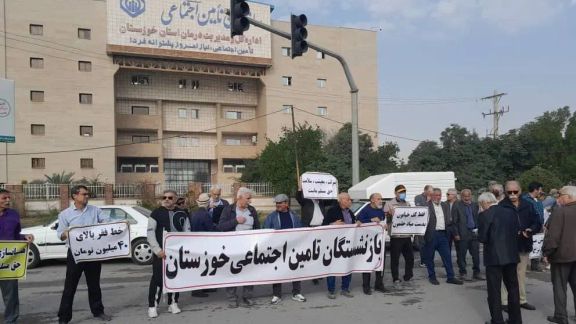
Retirees affiliated with Iran’s Social Security Organization, the country’s largest state-run pension fund, held protests in multiple cities on Sunday demanding better pensions and improved living conditions as inflation and economic hardships persist.
Demonstrations took place in the capital, Tehran, as well as in Ahvaz and Shush in southwestern Iran, with retirees decrying low pensions, rising costs, and unfulfilled government promises.
In Tehran, banners displayed slogans such as, “Healthcare and livelihood are our absolute rights” and “Our income is in rials; expenses are in dollars.”
In Ahvaz, protesters chanted, “Iran is rich, yet incompetent officials have destroyed it,” and “Forget the hijab; tackle inflation.” Demonstrators also criticized the government’s priorities, chanting, “Warmongering is enough; our tables are empty” and “Our enemy is right here; they lie it’s the US.”
Protesters in Shush gathered outside the county governor’s office to condemn poverty, inflation, and wages below the poverty line, shouting, “Our rights can only be claimed on the streets” and “We won’t live under oppression; we will sacrifice for freedom.”
Social Security retirees have staged numerous protests in recent years over declining pensions and unmet demands. US-based rights group HRANA reported at least 1,279 protests and strikes in Iran in 2024, underscoring public frustration with worsening economic conditions.
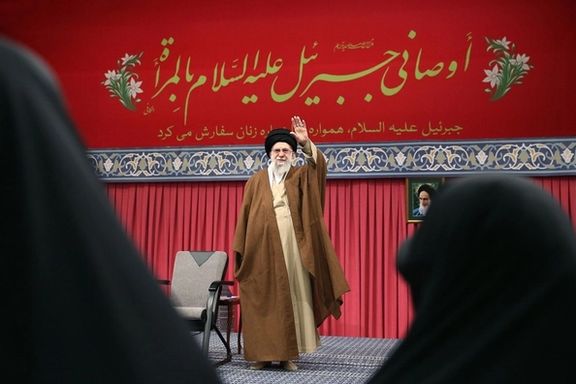
As Iran’s political establishment braces for Donald Trump’s return as US president, a senior figure in Ali Khamenei's office has sought to downplay the Supreme Leader's recent remarks, in which he urged Iranian officials to disregard US demands.
What did Mehdi Fazaeli say about Khamenei's speech?
Fazaeli, regarded as an official authorized to interpret Khamenei's views, told Hamshahri newspaper in Tehran, “It has often happened that a group of people misunderstand a statement [by Khamenei] or pretend they have misunderstood it, taking the liberty to make unjustified interpretations and judgments.”
He said that Khamenei's remark, widely seen as a barrier to potential talks with Trump, was not meant to rule out negotiations if the two sides' positions align.
Fazaeli further argued that Khamenei's message was a directive for Iranian officials to prioritize and uphold national interests above all else.
He claimed that there are instances in governance, where a country's interests align with those of a foreign nation. However, he also appeared to emphasize that such decisions are driven solely by national interests, even if they coincide with the other country’s desires. The motivation behind these decisions, he said, is rooted in domestic priorities, not external influence.
Tehran's media widely covered Fazaeli's explanations, which aimed to soften perceptions of Khamenei’s intransigence regarding potential talks with the new Trump administration—a prospect many in Iran are hopeful for.
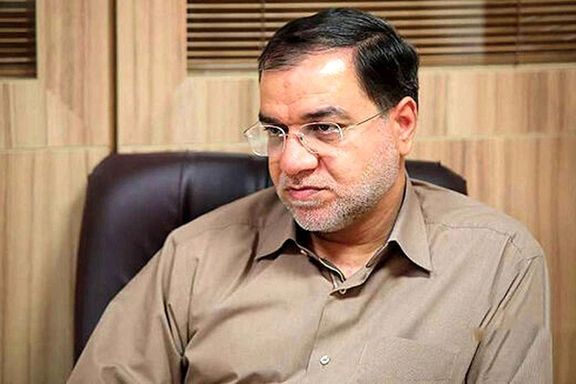
President Masoud Pezeshkian and some senior officials in his administration advocate for negotiations with Washington to lift US sanctions and stabilize Iran's rapidly deteriorating economy. In what some interpreted as a gesture of goodwill by Tehran, the government offered to send help to the US to contain the ongoing fires in California on Saturday.
Moderate conservative Ali Larijani, a former parliament speaker and Khamenei’s adviser, has suggested that Iran may be open to serious negotiations with the Trump administration on the nuclear issue.
Larijani who has assumed a more prominent public role as Khamenei’s adviser in the past few months has suggested that Iran could guarantee not to build a nuclear bomb if the US meets Iran's conditions, emphasizing that Washington’s withdrawal from the 2015 nuclear deal did not halt Tehran’s nuclear advancements.
What did Khamenei say about the US in his speech?
Khamenei delivered the speech to a group of visitors from Qom, commemorating the anniversary of Islamist revolutionaries' protests against the Shah in January 1978.
The protests took place shortly after US President Jimmy Carter's visit to Iran, during which he described the country as "an island of stability."
The unrest in Qom was sparked by a newspaper article seen as insulting Ruhollah Khomeini, who would later become the Islamic Republic's first Supreme Leader. The crackdown on the protesters set off a wave of demonstrations nationwide, culminating in the Islamic Revolution of February 1979.
In his speech, Khamenei cited the Qom protests as evidence that Carter and his administration misunderstood the revolutionaries' strength and “miscalculated” the situation in Iran at the time.
Khamenei asserted that the US, which he repeatedly referred to as "the enemy," has consistently misjudged Iran, leading to decisions like imposing sanctions to cripple the Iranian economy. However, he claimed these efforts have failed, and the US is now seeking to compensate for its setbacks.
“Yes, the sanctions caused harm to the country. It’s not as though they didn’t. They did harm us,” Khamenei said, adding, “God willing, the Iranian nation will one day hold them accountable for these losses.”
In his lengthy speech, Khamenei refrained from directly addressing talks with the US or European parties to the nuclear deal. Instead, he urged officials of the Islamic Republic to resist US demands and prioritize what he described as the preferences of the Iranian people—though in reality, these preferences often mirror the decisions of the Islamic leadership and, ultimately, his own directives—on issues such as the hijab, the economy, and foreign policy.
Iranian officials would be threatening “the country’s democracy and its republicanism” if they complied with the US demands in these respects, he said.
“Why? Because people voted for us, they brought us to power, to work in their interests -- not America’s,” he added.
Khamenei seemed to draw a parallel between the situation in January 1978 and the present, suggesting that the US would be mistaken in believing the Islamic Republic is now in a weakened position and could be coerced into an agreement it does not want to make.
What authority does Fazaeli have to speak for Khamenei?
Fazaeli, deputy chief of the Office for the Preservation and Publication of the Works of the Leader of the Revolution, holds a senior position within Khamenei’s office.
In recent months, he has often spoken on the record to "clarify" or offer "context" for Khamenei’s statements on controversial issues.
In at least one instance, ultra-hardliners accused Fazaeli of lying after he indirectly confirmed in a tweet that Khamenei had endorsed the Pezeshkian government’s decision to amend a specific law.
They also argue that Fazaeli lacks the authority to act as Khamenei’s spokesman. Other officials within Khamenei’s office have neither confirmed nor denied Fazaeli’s statements.
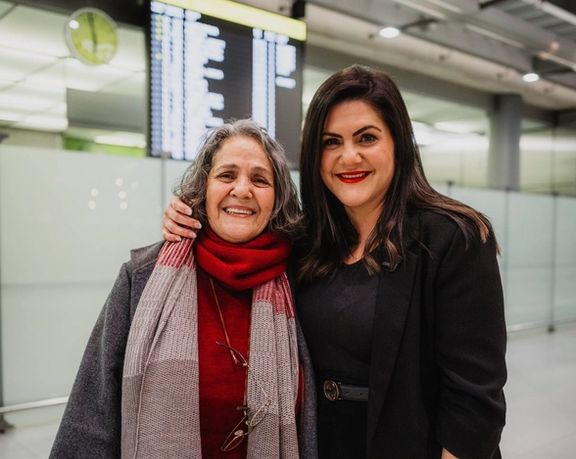
German-Iranian political prisoner Nahid Taghavi, 70, has been freed from Tehran’s Evin prison and returned to Germany, her daughter announced on Monday.
“It’s over. Nahid is free! After more than 4 years as a political prisoner in the Islamic Republic of Iran, my mother Nahid Taghavi was freed and is back in Germany,” her daughter Mariam Claren wrote on X.
German Foreign Minister Annalena Baerbock expressed joy over Taghavi's release, calling it "a great moment of joy that Nahid Taghavi can finally embrace her family again" in a post on X.
A spokesperson from Germany's Federal Foreign Office told Iran International that the "government has worked hard to secure Mrs Taghavi's overdue release."
"It is good news that the incarceration of Mrs Taghavi has been ended and that she was reunited with her family. Mrs Taghavi and her family have endured unbearable hardship," the spokesperson added.
Taghavi was arrested in Tehran in October 2020 and, as detailed by her daughter, endured psychological torture during her detention. She was confined to solitary confinement in the notorious Ward 2-A of the Revolutionary Guards at Evin Prison for 220 days.
She was sentenced to 10 years and eight months in prison on charges of being an “accomplice in running illegal groups and propaganda against the regime,” according to rights groups.
Amnesty International said Taghavi was released last year on January 9 under house arrest, wearing an ankle tag and restricted to a 1,000-meter radius, returning to prison after 50 days on 28 February. In September, Taghavi was temporarily released again under the same conditions before her final release this week.

Sweden's prime minister on Sunday accused the Islamic Republic of using organized criminal groups to orchestrate crimes in the Scandinavian country.
"Iran is using organized and violent criminal gangs to carry out serious attacks within Sweden," Prime Minister Ulf Kristersson said on Sunday, calling it part of "hybrid attacks and proxy wars" on the Scandinavian country's soil.
“Sweden is not at war. But there is no peace either," he said on the opening day of Sweden’s three-day annual Folk och Försvars (people and defense) conference in Sälen, northern Sweden.
The Swedish prime minister noted that “true peace requires freedom and the absence of serious conflicts between countries. But we and our neighbors are exposed to hybrid attacks, carried out not with robots and soldiers, but with computers, money, disinformation and the risk of sabotage.”
Those who want peace, he said, must “be prepared for war”.
Last year, Sweden's security service said that the Iranian government had been using criminal networks within Sweden to carry out violent acts against other states, groups and individuals, specifically Israel.
Tehran enlisted criminals to carry out armed attacks on Israeli embassies in Stockholm and Copenhagen, a Swedish police source and another informed source told Iran International in October 2024.
In May, Sweden arrested two teenage boys - aged 14 and 15 - after a shooting near the Israeli embassy. The Swedish intelligence agency at the time accused Tehran of recruiting gang members to attack Israeli interests in the Scandinavian country.
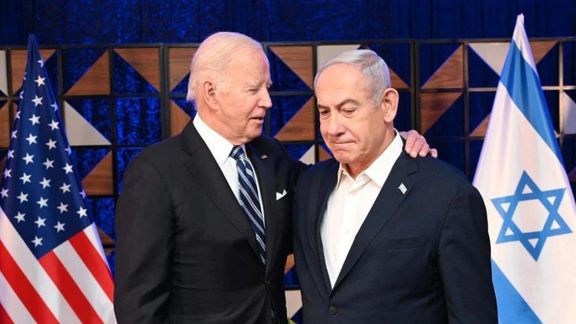
US President Joe Biden and Israeli Prime Minister Benjamin Netanyahu discussed "the fall of the Assad regime in Syria and the weakening of Iran’s power in the region" in a phone conversation on Sunday, the White House said.